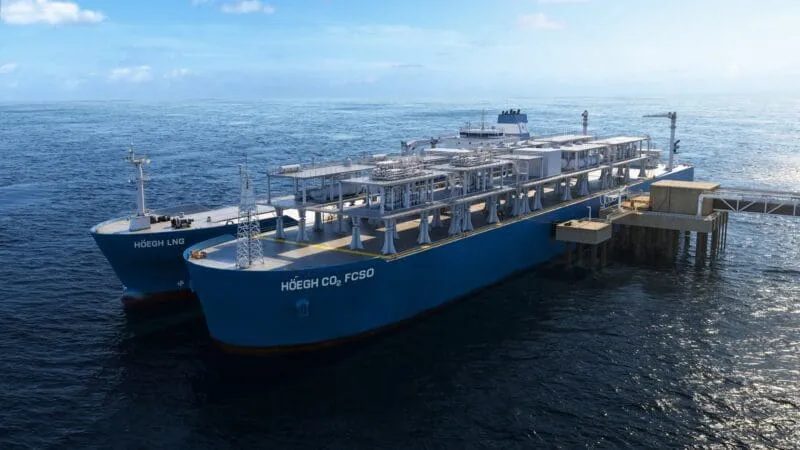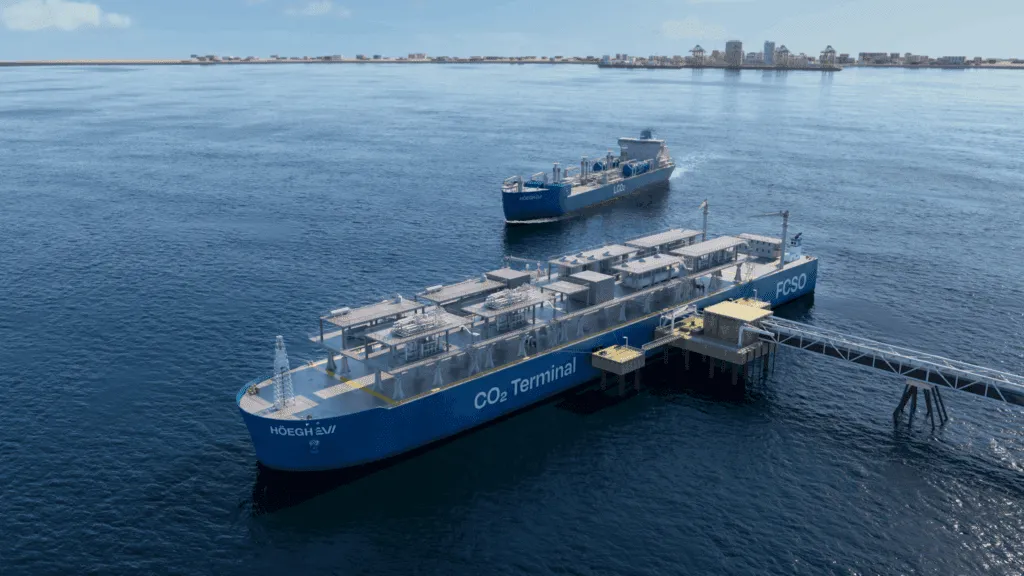Summary
The carbon capture and storage (CCS) partnership between Höegh Evi and Aker BP is a significant step in accelerating industrial decarbonisation across Europe. Together, we offer a flexible maritime CCS value chain to reduce emissions from hard-to-abate industry at scale and speed.
The fully integrated solution includes the entire value chain from collection of CO2 to permanent subsea storage at the Atlas and Poseidon reservoirs on the Norwegian Continental Shelf. With a fully marine-based system, we can provide a seamless solution that lowers the barriers to entry for medium- to smaller-scale emitters.
Challenge
CCS is viewed by the EU as key to achieving its ambitious target of 55% reduced emissions by 2030(compared to 1990)* which would require 50 million tonnes of CO2 storage capacity per year by 2030. As of mid-2025, the EU has around 10 million tonnes per year of operational CO2 storage capacity- around 80% behind the target, and five years to go.
While there is strong governmental support for CCS, project development has lagged due to delays and lack of decisions in the capturing side by the industry, need to build extensive pipeline infrastructure, fragmented regulation, slow permitting processes, high infrastructure costs, long construction timelines, congested port areas and limited access for smaller emitters.
Solution
Now, Höegh Evi and Aker BP have combined their strengths to offer a fast, seamless, and cost-effective alternative: a fully maritime CCS value chain.
The solution overcomes the challenges of cross-border and regulatory fragmentation by connecting emitters across Europe with permanent North Sea storage using ships.
The CO2 is received by floating CO2 terminals (FCSO), coming from various sources- pipelines, ships, trains or trucks. The CO2 can be compressed, liquefied and purified to offshore injection standards at the FSCO.
Next-generation shuttle carriers then collect and transport the CO2 to the Atlas and Poseidon reservoirs on the Norwegian Continental Shelf. It is injected directly at the storage site, eliminating the need for costly onshore terminals pipelines. The flexibility of the solution allows industrial emitters of all sizes to participate, making CCS broadly accessible and creating a resilient pan-European CCS network.
Impact
7
Million metric tons of CO2 are captured and stored annually
15%
Reduction in carbon footprint
12
mtpa combined storage at reservoirs, with potential to scale
*compared to 1990 levels
Other projects

